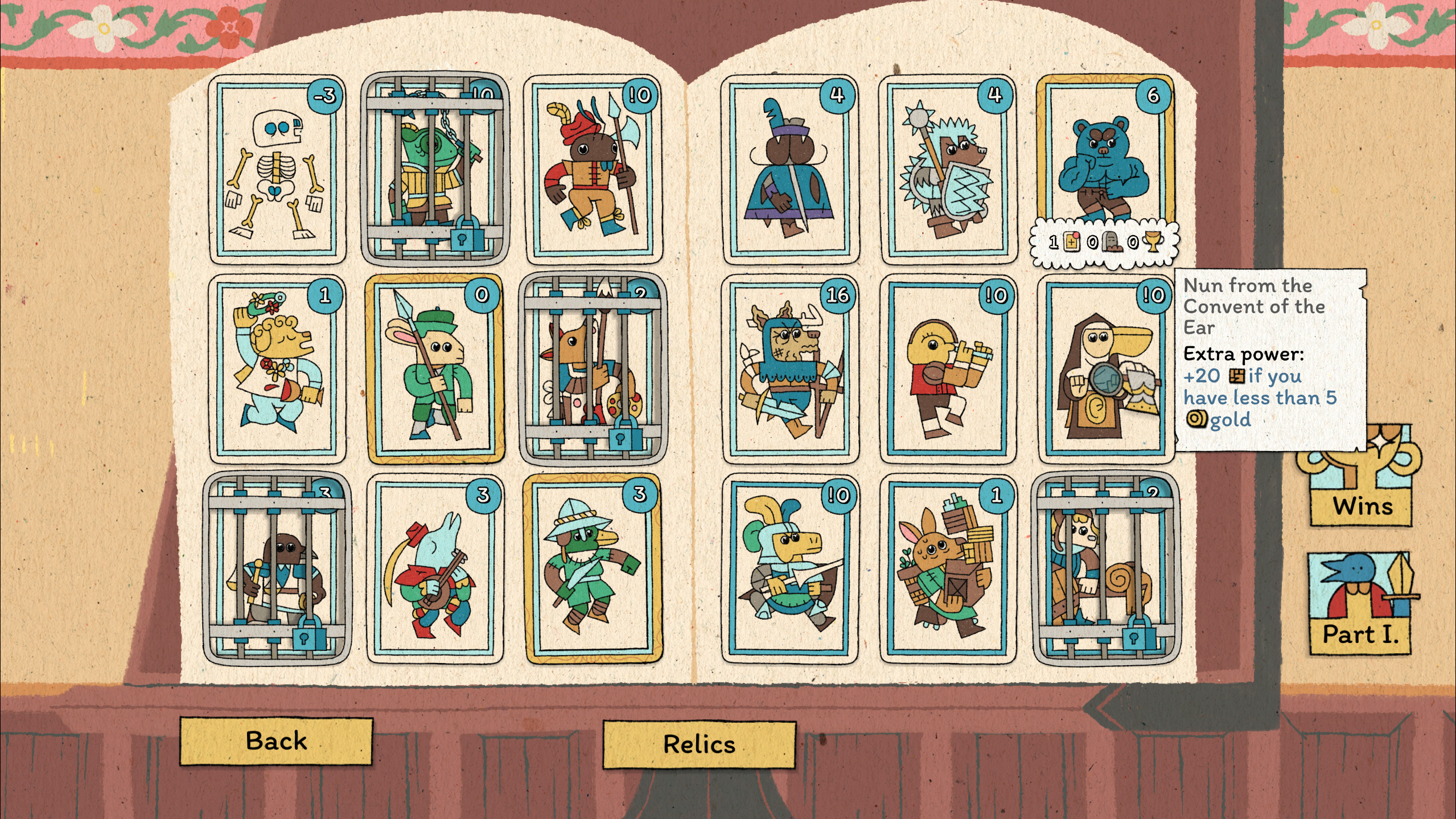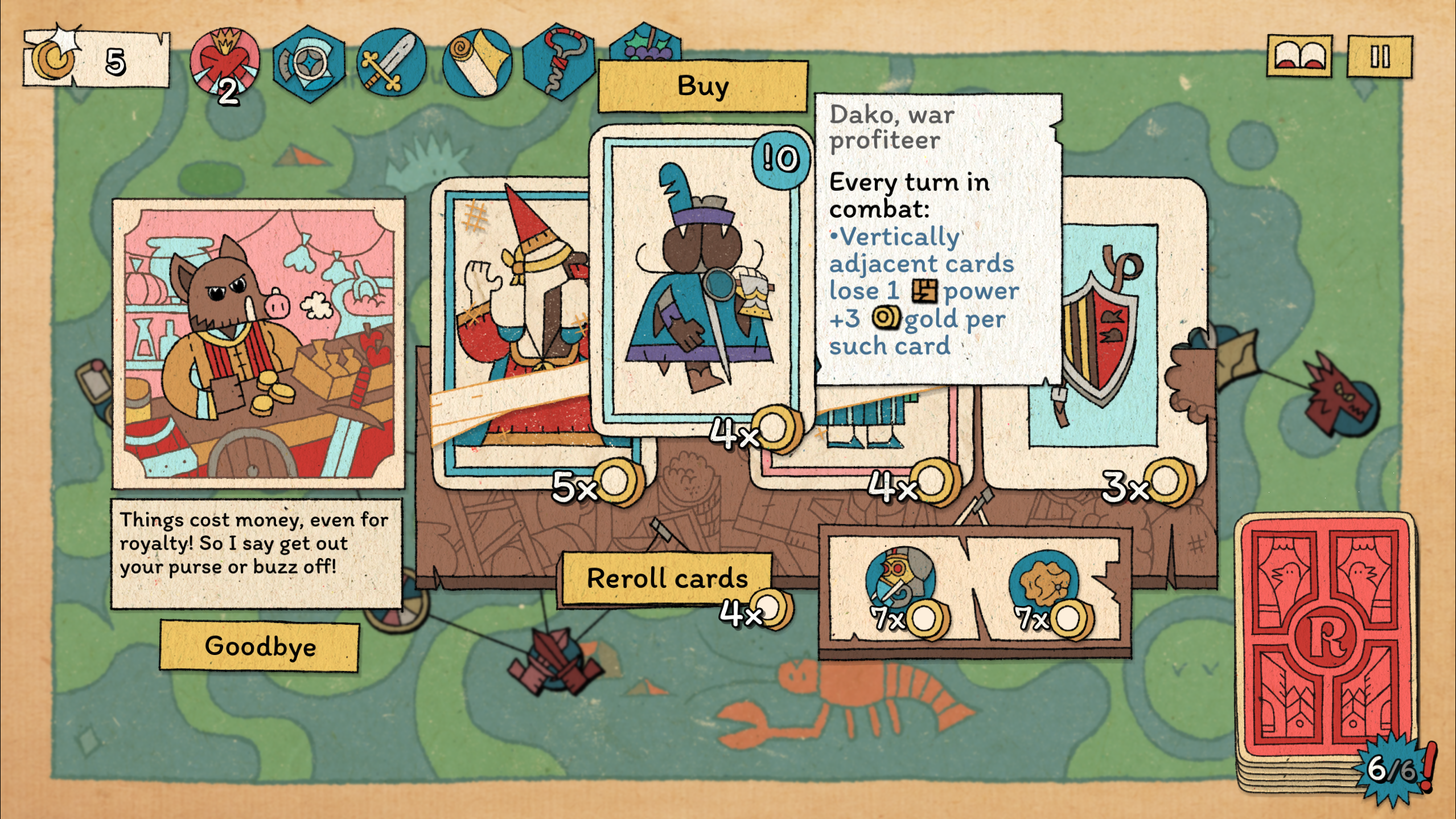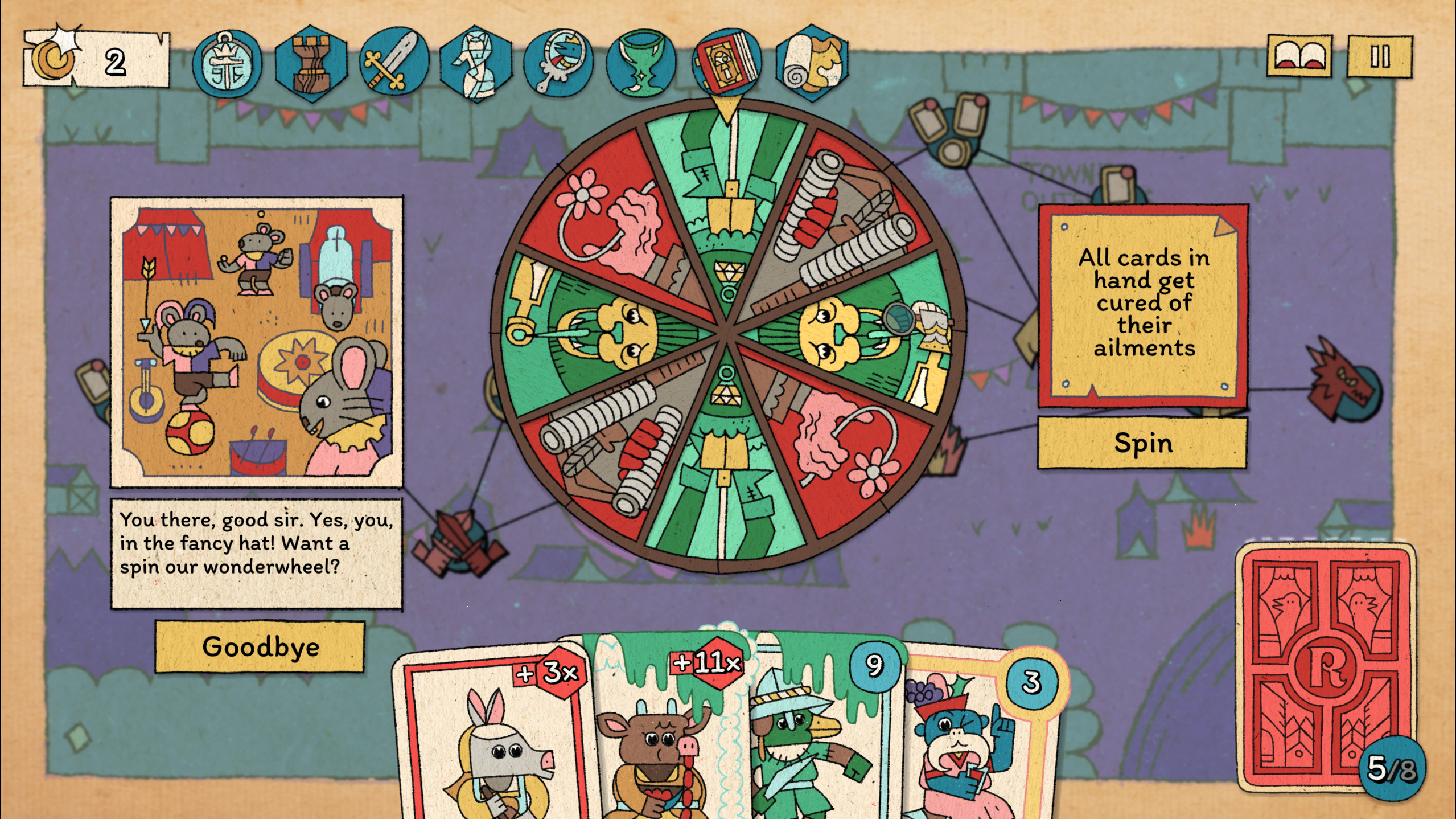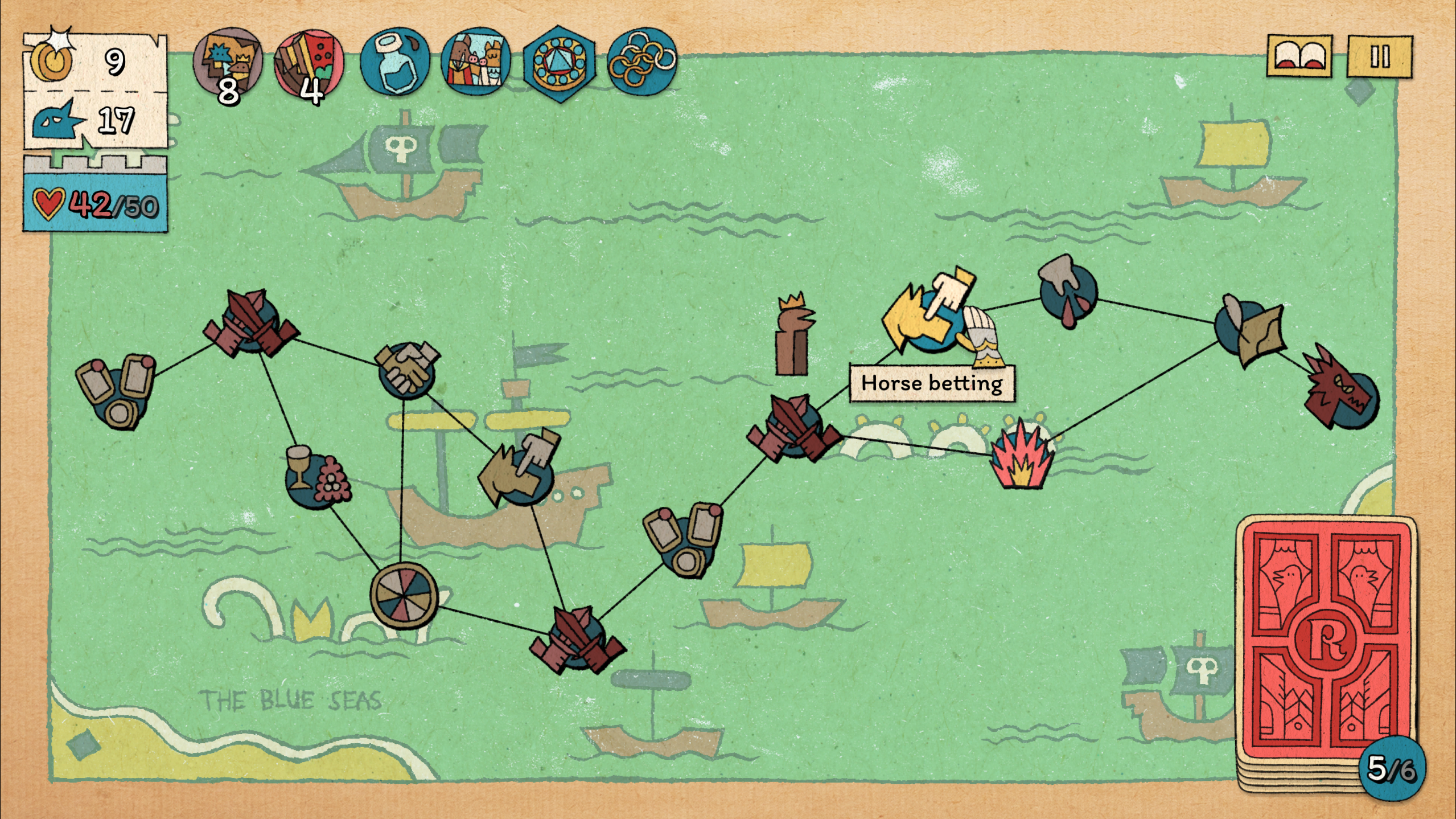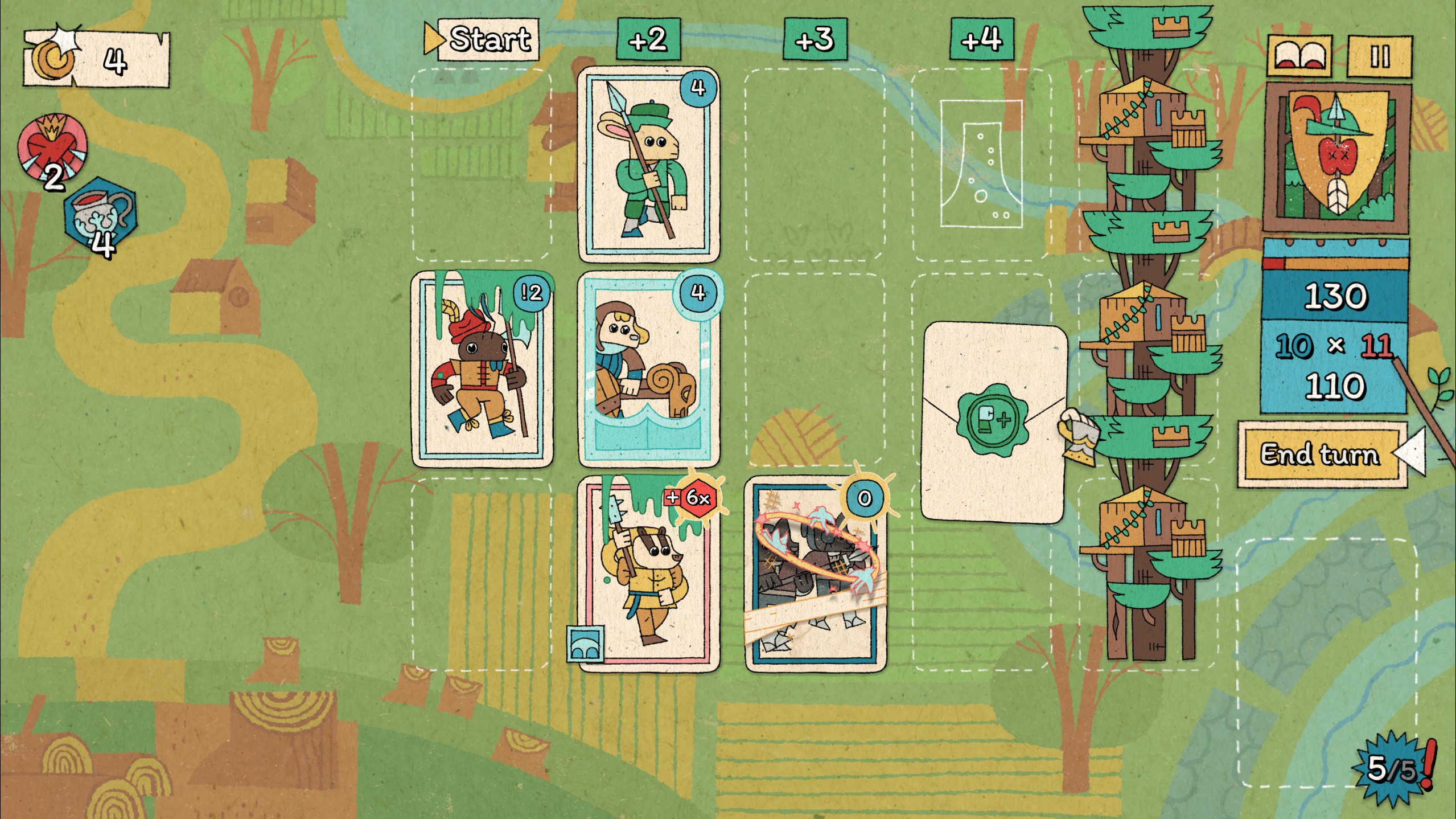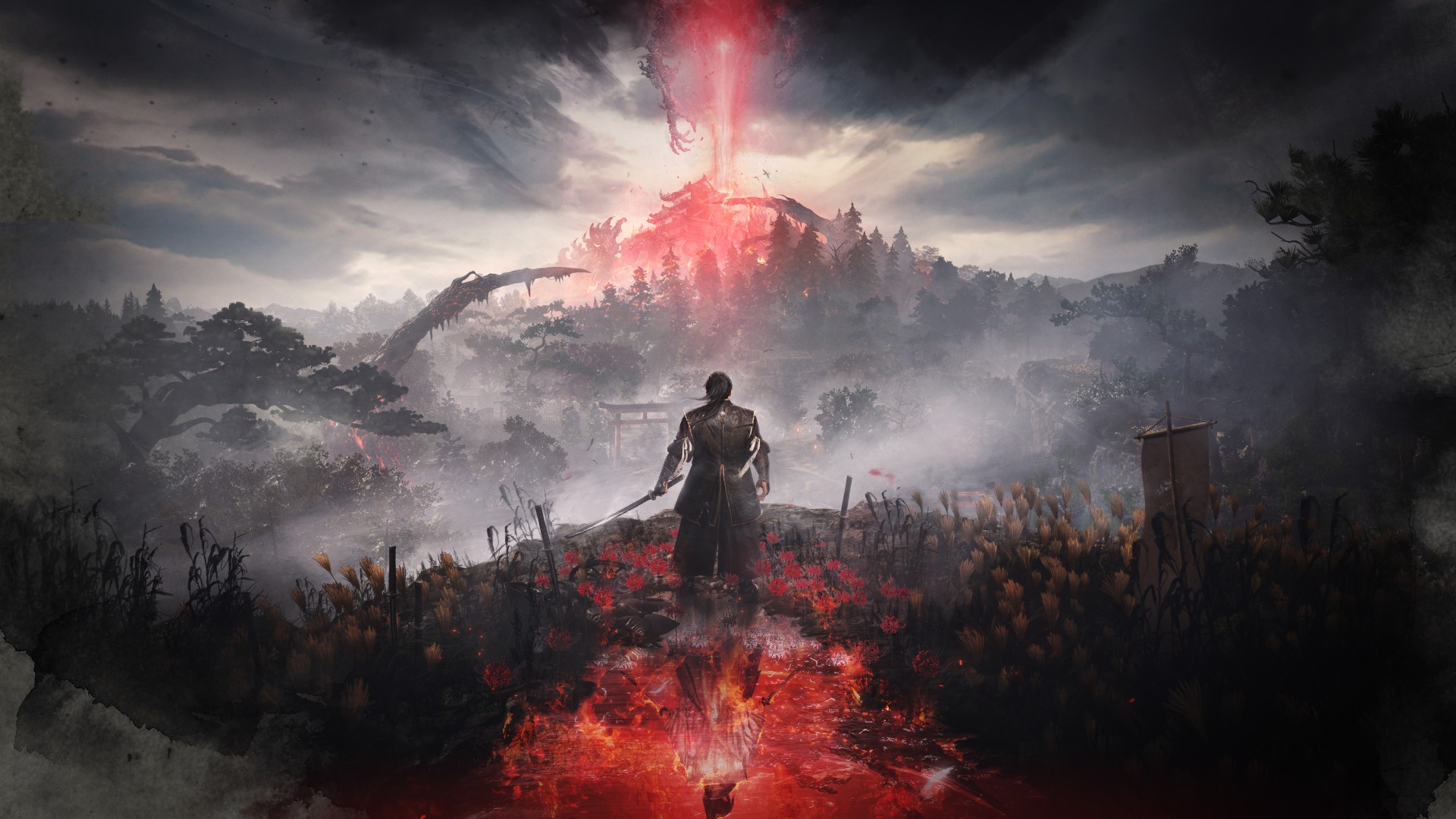Don't ask me how many peasant soldiers I've sent to their demise in this roguelike deckbuilder where your cards can suffer slow, painful permadeath
The Royal Writ is brutal in ways both exciting and frustrating.
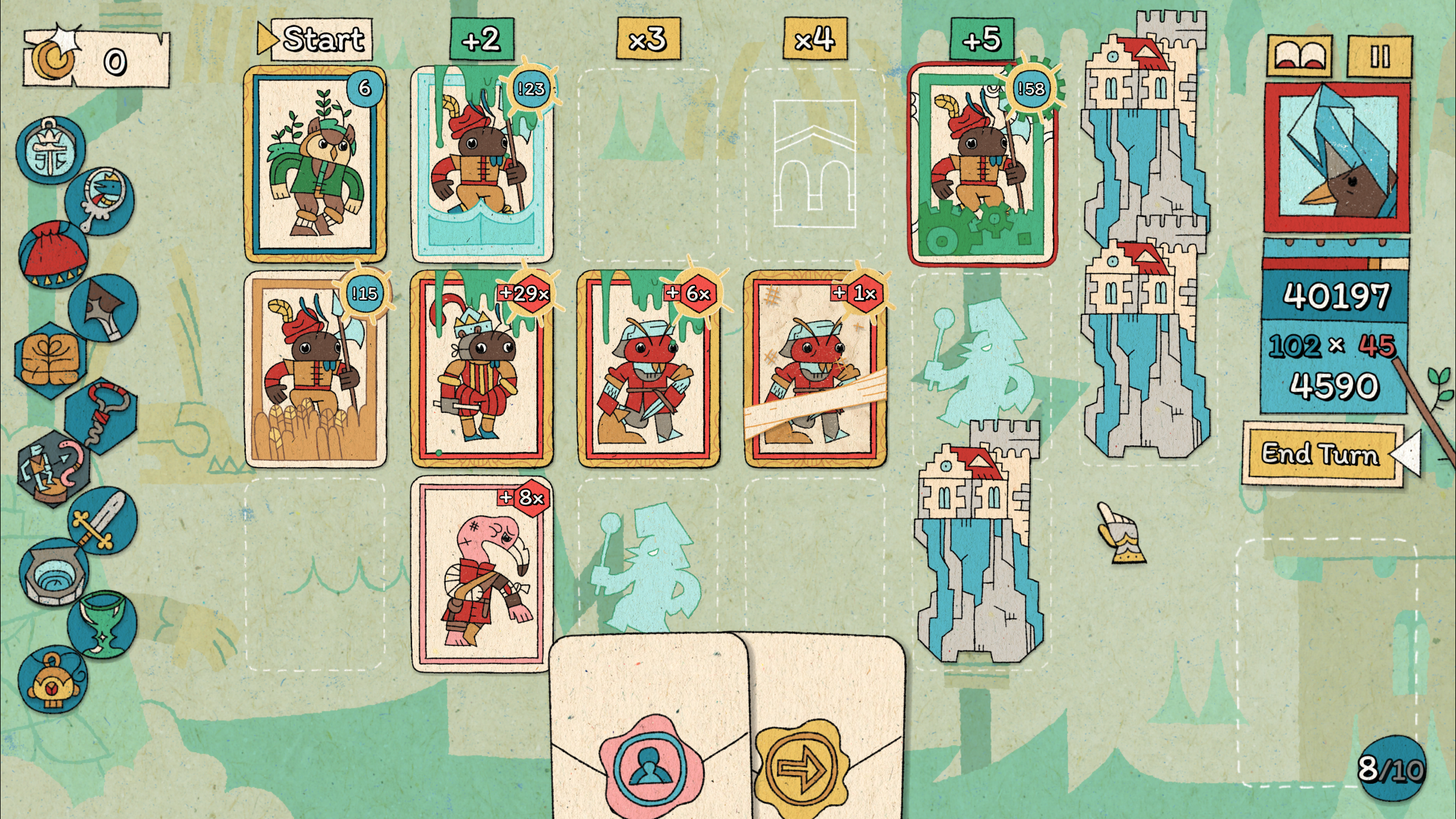
Keep up to date with the most important stories and the best deals, as picked by the PC Gamer team.
You are now subscribed
Your newsletter sign-up was successful
Want to add more newsletters?

Every Friday
GamesRadar+
Your weekly update on everything you could ever want to know about the games you already love, games we know you're going to love in the near future, and tales from the communities that surround them.

Every Thursday
GTA 6 O'clock
Our special GTA 6 newsletter, with breaking news, insider info, and rumor analysis from the award-winning GTA 6 O'clock experts.

Every Friday
Knowledge
From the creators of Edge: A weekly videogame industry newsletter with analysis from expert writers, guidance from professionals, and insight into what's on the horizon.

Every Thursday
The Setup
Hardware nerds unite, sign up to our free tech newsletter for a weekly digest of the hottest new tech, the latest gadgets on the test bench, and much more.

Every Wednesday
Switch 2 Spotlight
Sign up to our new Switch 2 newsletter, where we bring you the latest talking points on Nintendo's new console each week, bring you up to date on the news, and recommend what games to play.

Every Saturday
The Watchlist
Subscribe for a weekly digest of the movie and TV news that matters, direct to your inbox. From first-look trailers, interviews, reviews and explainers, we've got you covered.

Once a month
SFX
Get sneak previews, exclusive competitions and details of special events each month!
Your average roguelike deckbuilder gives you plenty to worry about. Will I get that last card I need to perfect this combo? Is my damage high enough to beat that next boss? Have I got enough card draw to make this strategy work?
But one thing you don't normally have to worry about is your cards permanently leaving your deck because they fell in a hole and died.
In The Royal Writ, your deck isn't a collection of attacks, spells, or equipment—it's a small army of hapless animal peasants, serving at the whims of an oblivious king. (That's you.) As they're deployed onto the battlefield to fight rebels, bandits, and other threats to your rule, they contribute either a flat number or a multiplier to the damage you're able to apply each turn, along with whatever unique abilities and synergies they have to further tweak the results.
Despite the medieval set-up, the game it immediately reminded me of is Balatro. On the face of it, you're waging war, but really you're doing aggressive maths, stacking up bonuses to try and get as high a score as possible each turn.
That said, poker hands don't have to be deployed around hazardous terrain, and this is where The Royal Writ gets more perilous. Soldiers played on the field advance forward along their row each turn, and often the path ahead of them contains special terrain.
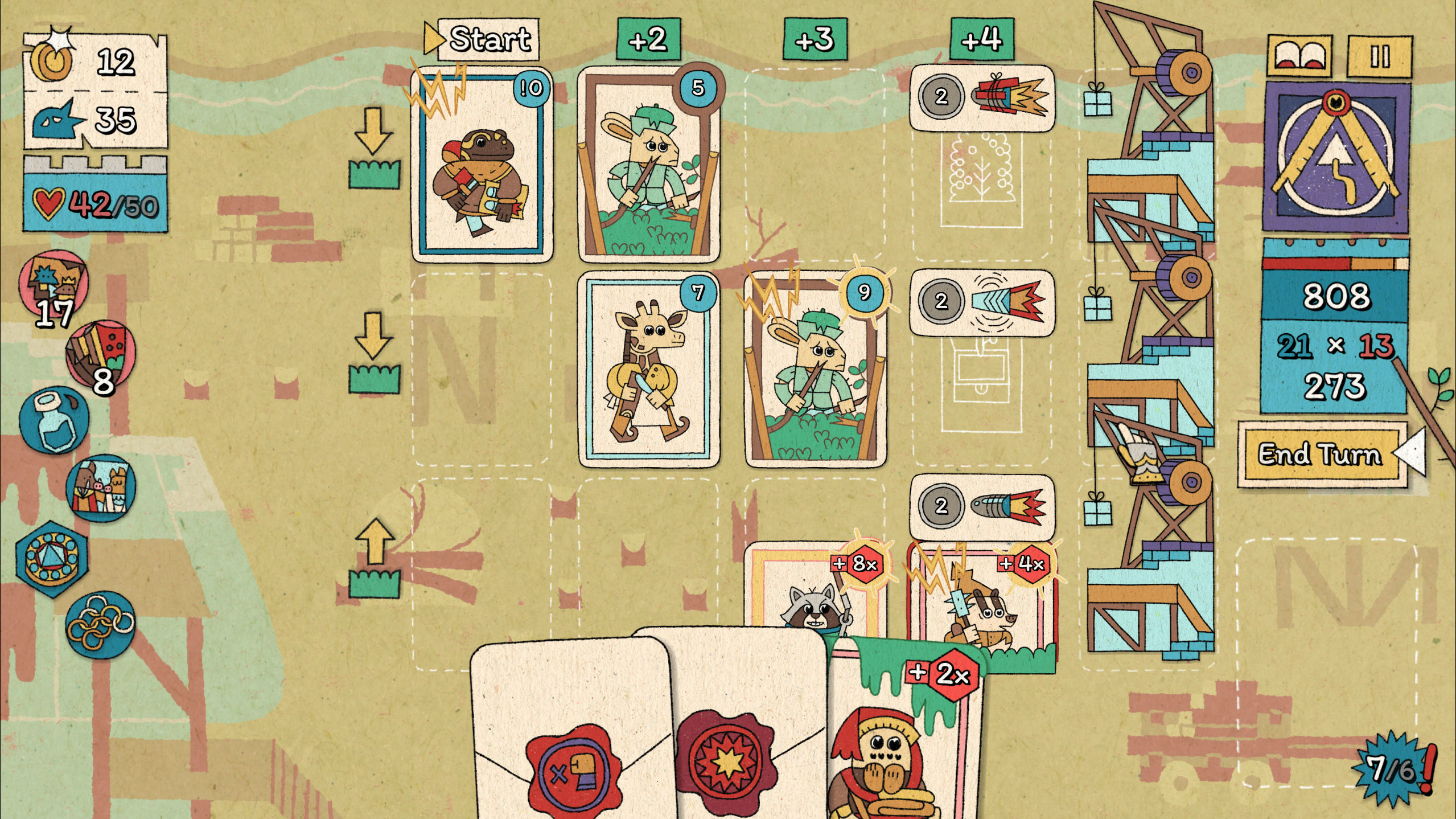
Rarely, those can have positive effects, like helpful bridges that boost the power of anyone on top of them or treasure chests containing useful buffs. More often, they're dangerous—such as poisonous swamps or bear traps.
It was about the point where one of my men dropped into a pit trap, was knocked unconscious, and then got trampled to death by his own allies walking over him that I realised The Royal Writ wasn't messing about.
Keep up to date with the most important stories and the best deals, as picked by the PC Gamer team.
Even if a soldier makes it across the field, if they spend more than a turn at the gates of the enemy castle, they immediately die, forcing you to push for fast resolutions. And the consequences really are permanent. Dead underlings are banished from your deck for good, and any ailments picked up stick around unless you can find a way to cure them. It's surprisingly brutal winning a fight by the skin of your teeth, only to then have to watch your favourite unit slowly die of poison over the course of the next one.
Even though you're playing a literal king, these mechanics give the game a uniquely scrappy underdog feel. Usually in roguelike deckbuilders I'm shaping and refining my deck into a perfect engine of power. In The Royal Writ, I'm often just scrambling to keep my forces going, regularly taking on new, weird combos of cards just to try and make it through the meatgrinder.
That does take away some of the smug satisfaction of pulling off a really brilliantly executed strategy, but the flipside of that is it ensures you can never get complacent. The latter stages of even truly brilliant roguelike deckbuilders like Slay the Spire can become a rote exercise—just doing the one trick you've put together in each fight until you get to the final boss and see if it's good enough to win.
In The Royal Writ, you're always on your toes, and often pivoting in different directions based on the current state of your deck. Even a perfectly honed squad of soldiers can be screwed up and undone by a harsh battlefield, a misjudged deployment, or a nasty boss ability, so complacency is never an option. It's a refreshing take on the genre.
Royally screwed
There is one major flaw here, however. Any game that wields permadeath and other serious consequences for failure has to feel completely fair. If your favourite unit gets ripped away from you for reasons that don't feel like they were truly your fault, it's a kick in the teeth rather than a just punishment. And unfortunately, The Royal Writ does do a bit more tooth-kicking than I'd like.
The biggest culprit is a lack of clarity. Too much key information is poorly explained or not surfaced well with tooltips, and it's easy to misunderstand how a mechanic works right before it murders one of your guys, or not understand why a particular event is happening.
Much of what I've written about here I've had to learn by trial and error. On your first run you're likely, for example, to assume that poison is a temporary affliction, and the game doesn't tell you otherwise, so you only figure it out the hard way.
Similarly, it can be oddly stingy in explaining what's already happened—such as when an event on the overworld map makes you lose a card, but doesn't tell you which one has been deleted, leaving you to manually check your deck and try to remember what's missing and whether your strategy is now screwed.
A whole mechanic of adding non-unit cards to your deck exists largely in the dark. One of your "letters" is added to your hand each turn, usually offering some kind of buff if played or free gold if not. You gain new letters over the course of a run, but I'm yet to find out how to check which ones you've currently got, or how many are left in the draw pile during a battle.
Other kinds of utility cards are at least visible in your deck, but it's not made clear until you play them that they're all single-use, making it easy to unknowingly waste them early on. Or that many of them don't stack, leading you to replace one rare and useful effect with another.
Many also have a cruel feel to their design—such as food items that offer a 50/50 chance that they'll either give you a powerful benefit or a major disadvantage. It's just not pleasant gambling on not just the outcome of the current battle, but potentially negative effects that can stick with you for the whole rest of the run.
These jagged edges don't kill the fun, but they do dampen it, especially early on, which is a shame for a game that otherwise carves out a really interesting niche in a crowded genre. I do still recommend giving it a try for yourself—and perhaps with the benefit of my hard-won lessons, you might not suffer the same (literal) pitfalls—but a couple of UX-focused patches after the game's launch on August 7 would go a long way to turning this from a good roguelike into a great one.

Formerly the editor of PC Gamer magazine (and the dearly departed GamesMaster), Robin combines years of experience in games journalism with a lifelong love of PC gaming. First hypnotised by the light of the monitor as he muddled through Simon the Sorcerer on his uncle’s machine, he’s been a devotee ever since, devouring any RPG or strategy game to stumble into his path. Now he's channelling that devotion into filling this lovely website with features, news, reviews, and all of his hottest takes.
You must confirm your public display name before commenting
Please logout and then login again, you will then be prompted to enter your display name.
